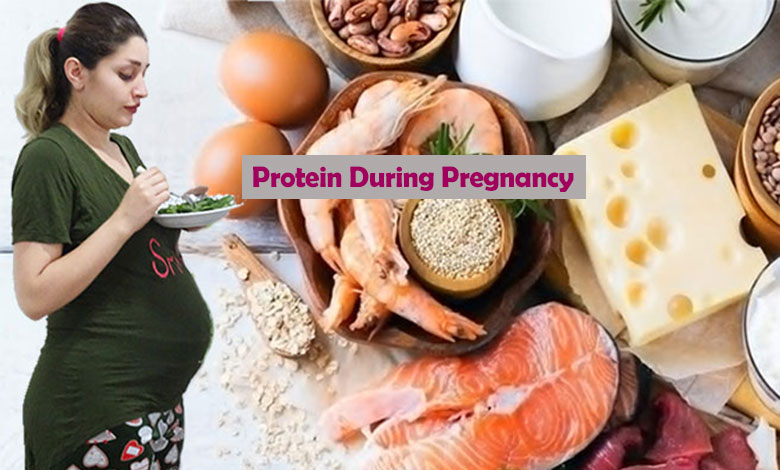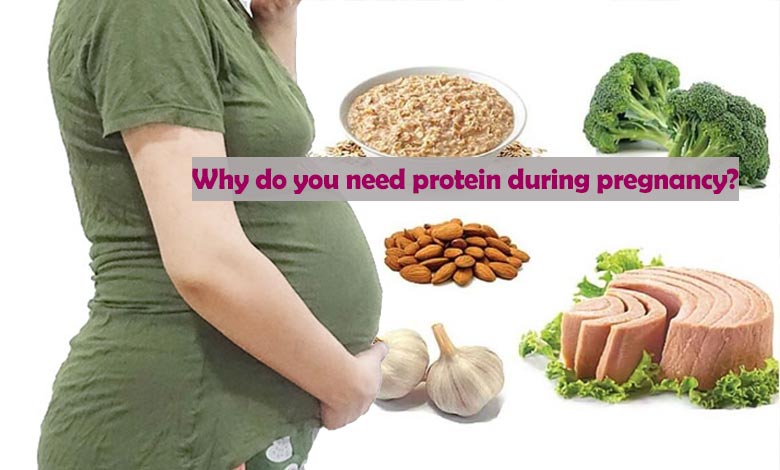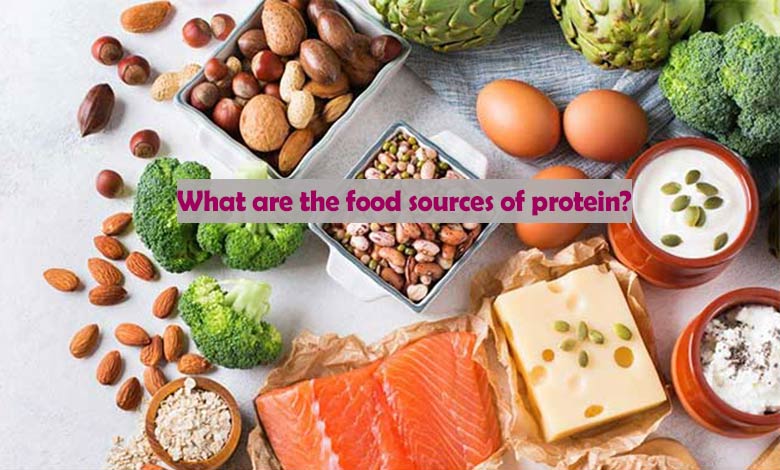Protein in pregnancy diet

Providing the protein you need during pregnancy is especially important. Because protein plays an essential role in fetal growth and the mother’s health. If this amount is not provided; It causes weight loss, infections, muscle fatigue, etc. The proteins needed during pregnancy are available in many foods. To consume protein during pregnancy, you can use dairy products, meat, beans, etc.
Related article: What fruits are useful for pregnancy?
The need to pay attention to the protein needed in pregnancy.
Proteins play a supporting role both in building the body’s cells and in correcting their function and repair. Thus, this proves the need to consume protein during pregnancy. As you know, the second and third trimesters of pregnancy are the time for the growth of the chest of the fetus and the enlargement of the baby’s organs.
It is easy to say that in these six months, paying attention to the provision of food needed by pregnant mothers and the amount of protein needed during pregnancy is one of the most basic duties of pregnant mothers.
Proteins play an essential role in fetal development
Some important and wonderful effects of this macronutrient are:
- Growth of new tissue
- Production of hormones and enzymes.
- Carrying oxygen through hemoglobin.
- Making antibodies for the immune system.
Why do you need protein during pregnancy?
The amino acids that make up protein are the building blocks of your body’s cells, as well as your baby’s body.

Getting enough protein is important during pregnancy, but it’s especially important in the second and third trimesters because the second and third trimesters are when your fetus is growing faster than ever before, and so are your breasts and other body parts. They grow to meet the needs of your growing baby.
How much protein should you consume?
The amount of protein needed by pregnant women can vary from 40 to 70 grams per day, depending on their weight. Most women probably get more protein than they normally need.
Therefore, you probably won’t have any problems meeting your body’s protein needs during pregnancy.
But if you don’t eat meat, you can get your protein from other sources like dairy, beans, and eggs, and be sure to follow a nutritionist. Weight loss, muscle fatigue, frequent infections, and severe fluid retention can be signs of a lack of or insufficient protein intake in the diet.
What are the food sources of protein?
Beans, as well as lean meats, poultry, fish, eggs, milk, cheese, tofu, and yogurt, are excellent sources of protein. Although animal products contain complete proteins, meaning they contain all 9 essential amino acids, and plant sources generally do not contain them, meaning they do not contain complete proteins, eating a variety of foods of both plant and animal origin throughout the day will help make sure you get all the amino acids you need.

Eat three or four servings of protein daily to be on the right path of nutrition to have a healthy pregnancy and give birth to a healthy baby.
For example, 70 grams of protein is roughly equivalent to two 236-milliliter glasses of milk, a 141-gram chicken breast, and a 207-milliliter container of nonfat Greek yogurt. Here are some other good sources of protein:
Dairy products are one of the protein sources and some suggestions for getting protein from dairy products in pregnancy are as follows:
- Half a glass of ricotta cheese: 14 grams
- Half a glass of low-fat cottage cheese: 12 grams
- 236 ml of low-fat yogurt: 9 to 12 grams
- 28 grams of parmesan cheese: 11 grams
- 28 grams of Swiss cheese: 8 grams
- A glass of low-fat milk: 8 grams
- 28 grams of cheddar cheese: 7 grams
- 28 grams of mozzarella cheese: 6 grams
- One large egg: 6 grams
Legumes and nuts:
It is considered another source of protein and some suggestions for getting protein from nuts and legumes during pregnancy are as follows:
- Half a glass of raw tofu, firm: 20 grams
- A glass of cooked lentils: 18 grams
- A cup of cooked black beans: 15 grams
- A cup of cooked red beans: 13 grams
- A glass of cooked pinto beans: 12 grams
- 2 tablespoons of soft peanut butter: 8 grams
- 28 grams of roasted peanuts: 7 grams
- A glass of plain soybeans: 6 grams
Red meat, chicken, and fish:
It is another source of protein and some suggestions for getting protein from meat during pregnancy are as follows. Note that 85 grams of cooked meat or fish are roughly the size of a pack of playing cards:
- Half a grilled chicken breast without skin: 27 grams
- 85 grams of cooked or grilled salmon: 23 grams
- 85 grams of cooked or grilled salmon: 23 grams
- 85 grams of a lean beef hamburger: 21 grams
Caution:
It is necessary to know that eating all fish is not safe for pregnancy. Some predatory fish, especially sharks, swordfish, king mackerel, and tilefish, should be avoided during pregnancy because they contain methylmercury.
Methylmercury is a metal that appears to be harmful to the developing brain of fetuses and young children in high doses. For more information about unhealthy foods during pregnancy, read the article Harmful Foods during Pregnancy.
Final word
Protein is one of the most important macronutrients in a mother’s diet. The amount of protein needed during pregnancy is about 70 grams per day. Please note that this amount can be obtained within a few days.
Protein helps in the better growth of the fetus, the health of the mother, the growth of new tissue in the fetus, the production of hormones and enzymes, etc.
Weight loss, muscle fatigue, frequent infections, and swollen limbs are signs of not getting enough protein in the diet.
Therefore, it is necessary for mothers with this symptom to pay more attention to protein consumption during pregnancy. Some food sources of this macronutrient are dairy products, meat, legumes, grains, etc.
Each of these food sources is different in terms of nutritional value, amount of protein, and vitamins. If prescribed by a doctor, you can take a protein supplement during pregnancy.
